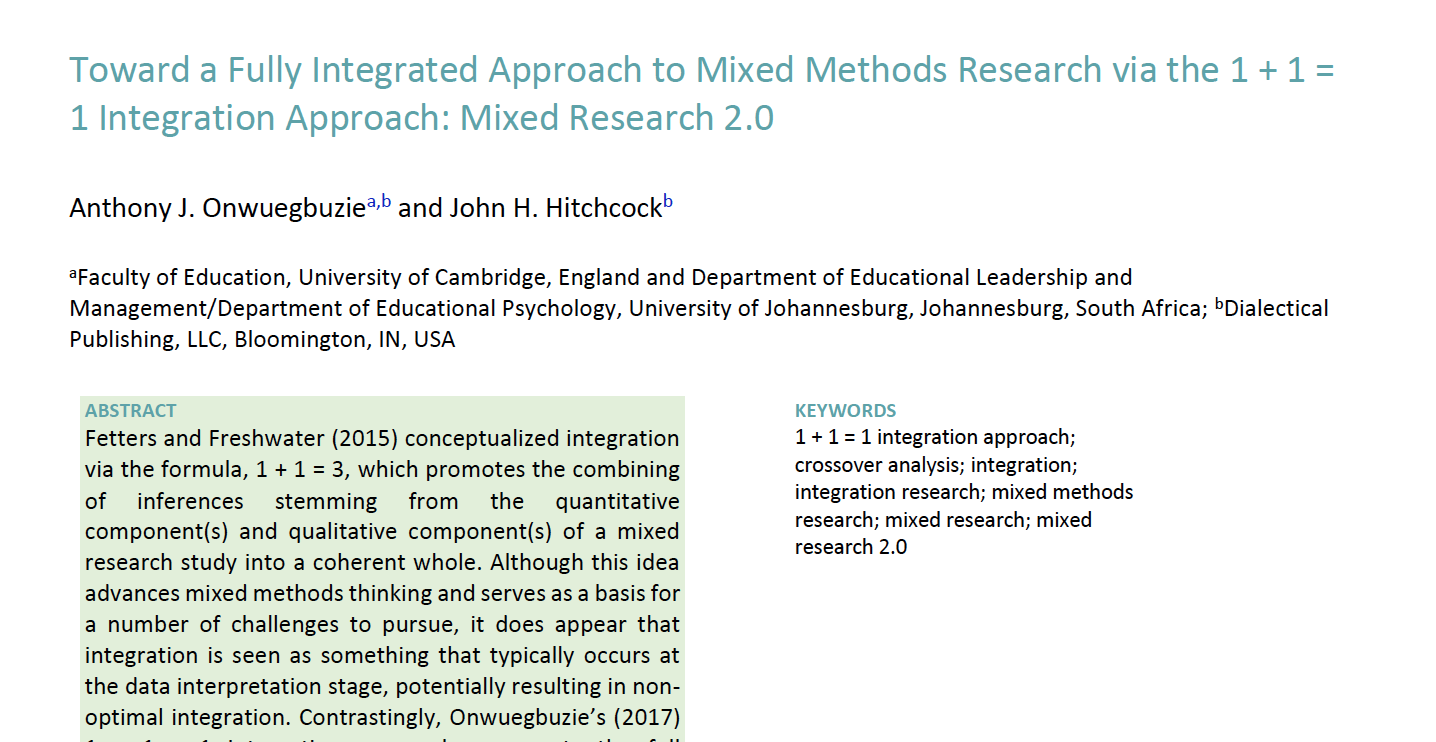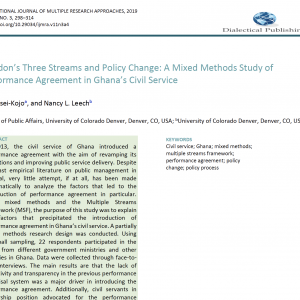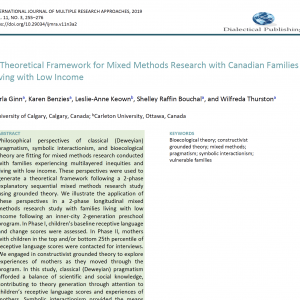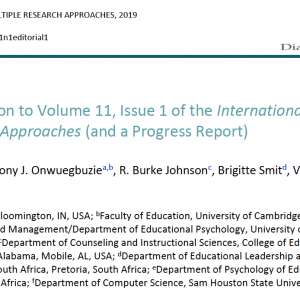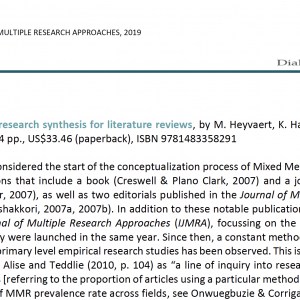11(1). Editorial 2. Toward a Fully Integrated Approach to Mixed Methods Research via the 1 + 1 = 1 Integration Approach: Mixed Research 2.0
$30.00
Description
Author
Anthony J. Onwuegbuzie (Faculty of Education, University of Cambridge, England and Department of Educational Leadership and Management/Department of Educational Psychology, University of Johannesburg, Johannesburg, South Africa; Dialectical Publishing, LLC, Bloomington, IN, USA)
John H. Hitchcock (Dialectical Publishing, LLC, Bloomington, IN, USA)
Abstract
Fetters and Freshwater (2015) conceptualized integration via the formula, 1 + 1 = 3, which promotes the combining of inferences stemming from the quantitative component(s) and qualitative component(s) of a mixed research study into a coherent whole. Although this idea advances mixed methods thinking and serves as a basis for a number of challenges to pursue, it does appear that integration is seen as something that typically occurs at the data interpretation stage, potentially resulting in non-optimal integration. Contrastingly, Onwuegbuzie’s (2017) 1 + 1 = 1 integration approach represents the full integration of qualitative and quantitative components at all stages of the mixed research process. Thus, the purpose of this article is to (a) deconstruct the process underlying the 1 + 1 = 1 integration approach, (b) identify published examples of this approach, and (c) conceptualize new examples of this approach. We recognize that some mixed researchers might reject our call for adopting a 1 + 1 = 1 integration approach because they believe that it represents too great a shift for the mixed research community. However, rather than representing a paradigm shift, we contend that our 1 + 1 = 1 integration approach represents an elaboration of the 1 + 1 = 3 integration approach that has the potential to answer questions in a more in-depth manner, as well as to answer more complicated and complex questions. Moving forward, we hope that the root idea behind full integration offers exciting new opportunities for mixed researchers to continue meta-thinking in this arena, thereby facilitating multimodal narratives to democratize evidence in a mixed research 2.0 era.
